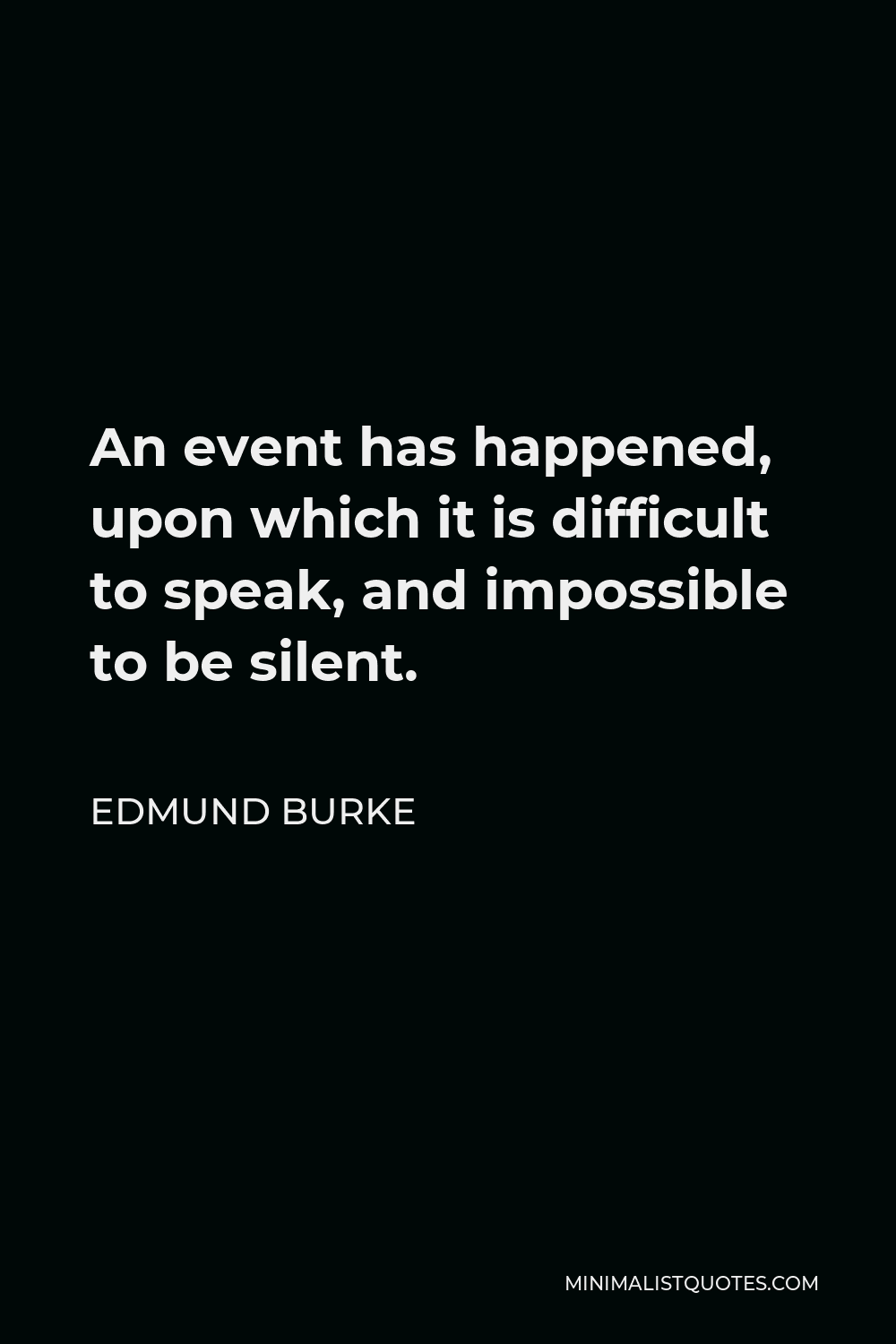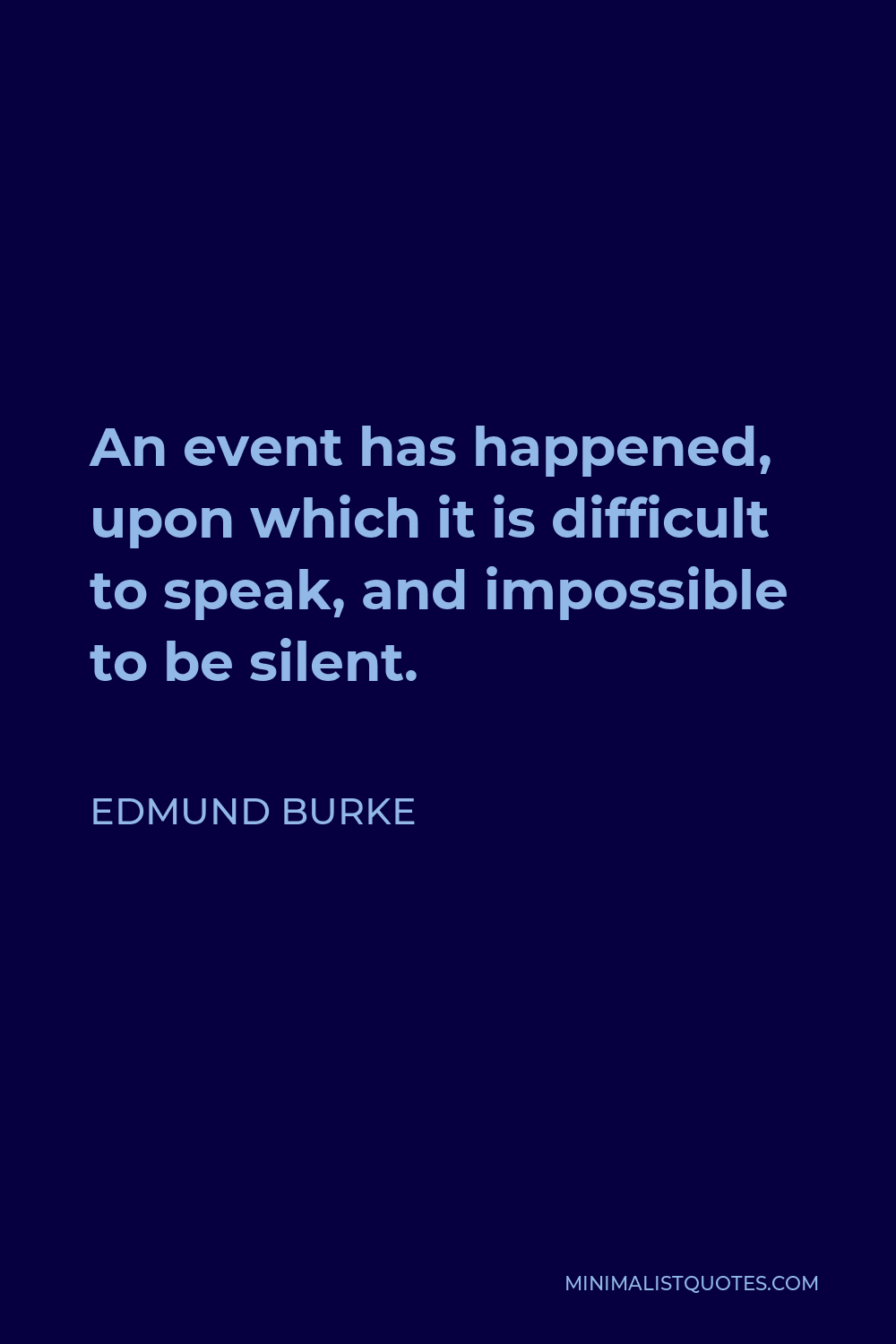It is the nature of all greatness not to be exact.
EDMUND BURKEAn event has happened, upon which it is difficult to speak, and impossible to be silent.
More Edmund Burke Quotes
-





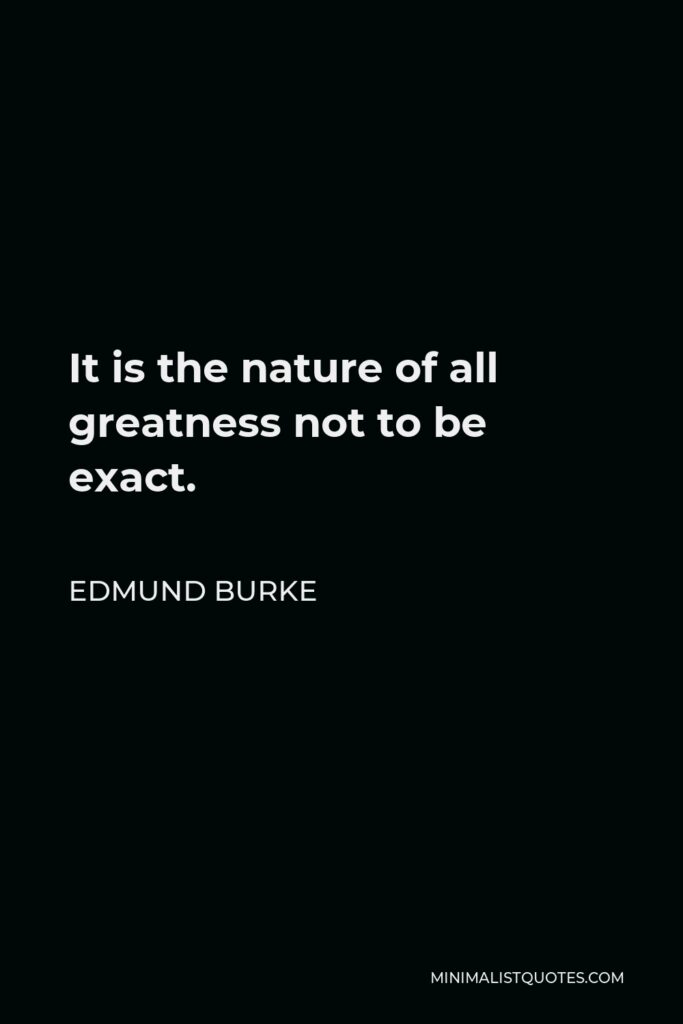

-





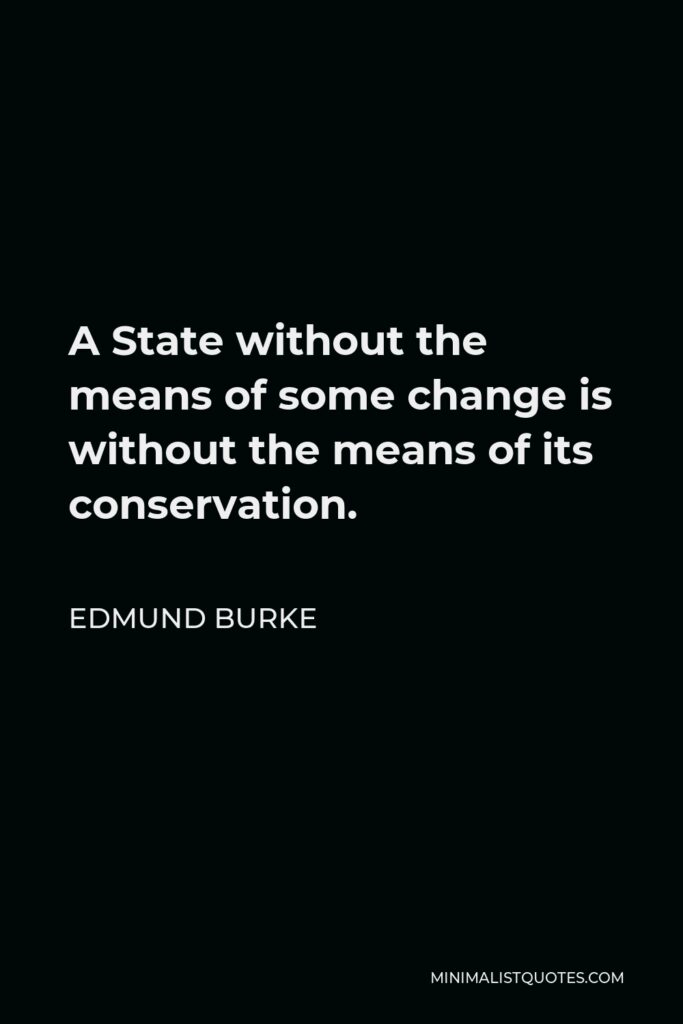

A State without the means of some change is without the means of its conservation.
EDMUND BURKE -





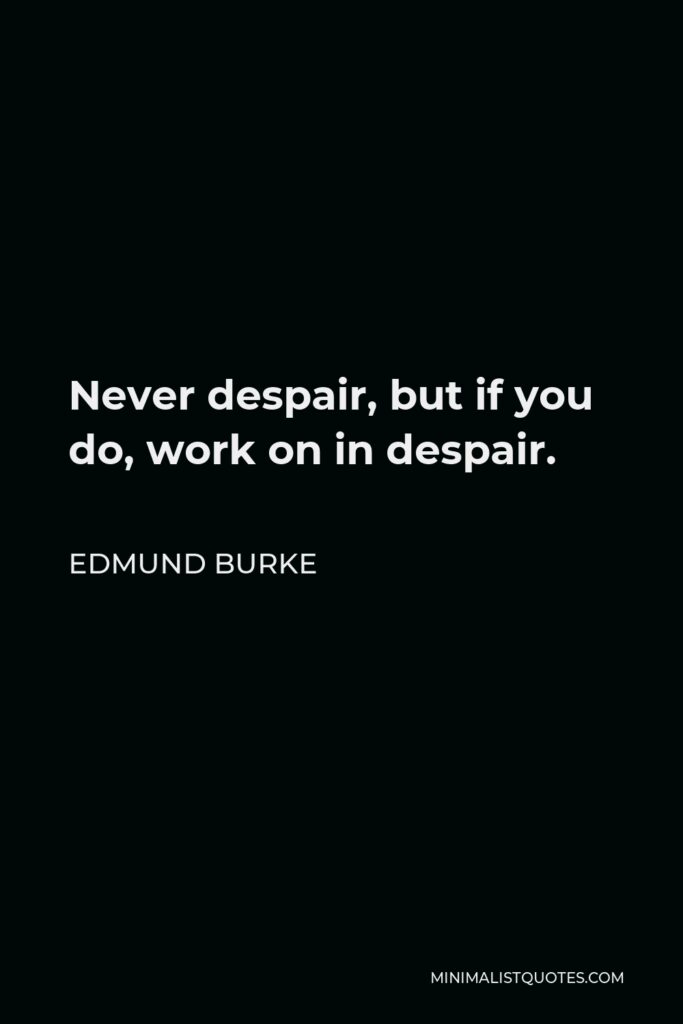

Never despair, but if you do, work on in despair.
EDMUND BURKE -





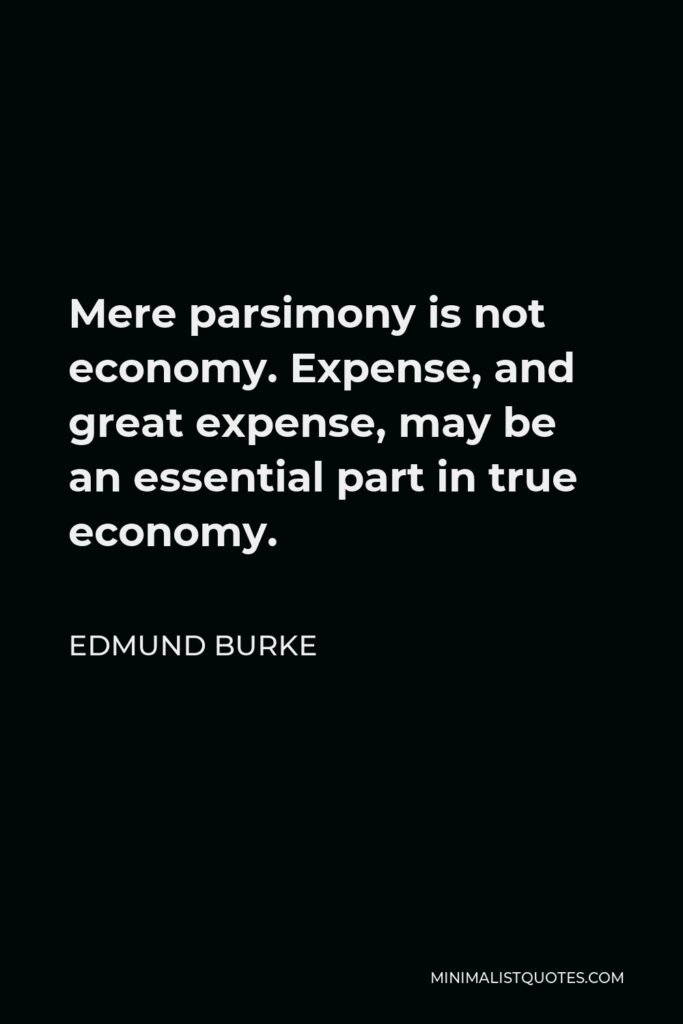

Mere parsimony is not economy. Expense, and great expense, may be an essential part in true economy.
EDMUND BURKE -





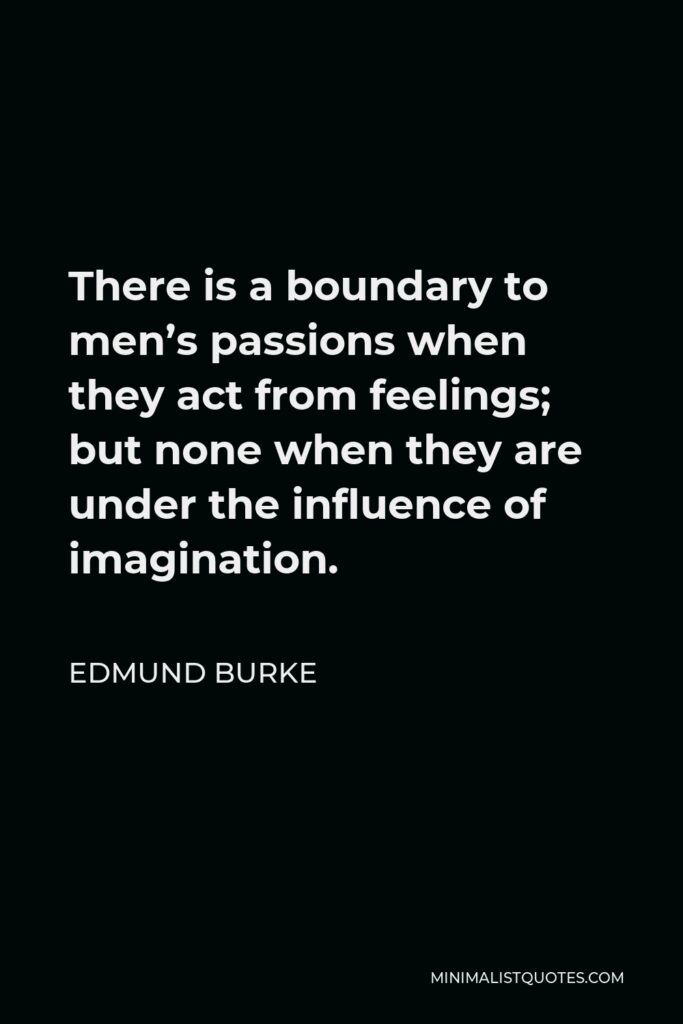

There is a boundary to men’s passions when they act from feelings; but none when they are under the influence of imagination.
EDMUND BURKE -





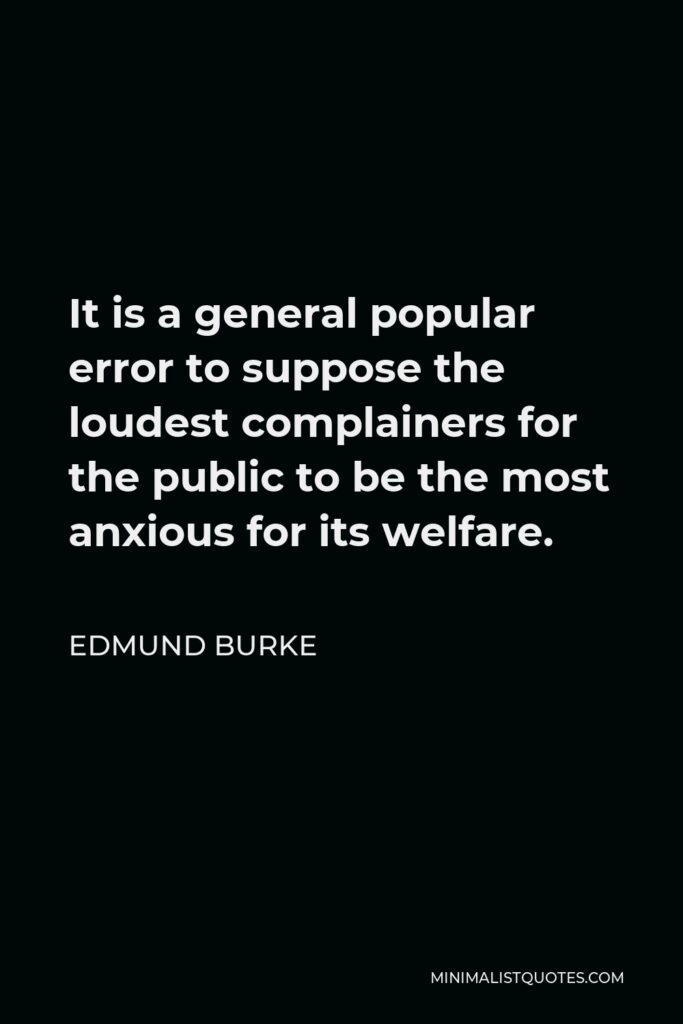

It is a general popular error to suppose the loudest complainers for the public to be the most anxious for its welfare.
EDMUND BURKE -





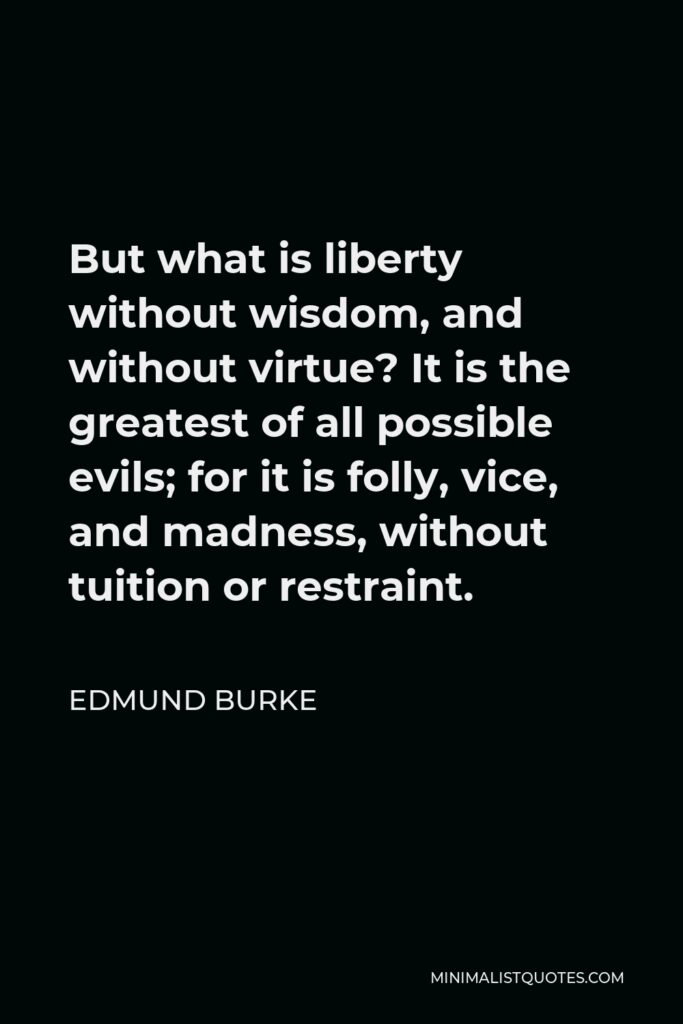

But what is liberty without wisdom, and without virtue? It is the greatest of all possible evils; for it is folly, vice, and madness, without tuition or restraint.
EDMUND BURKE -





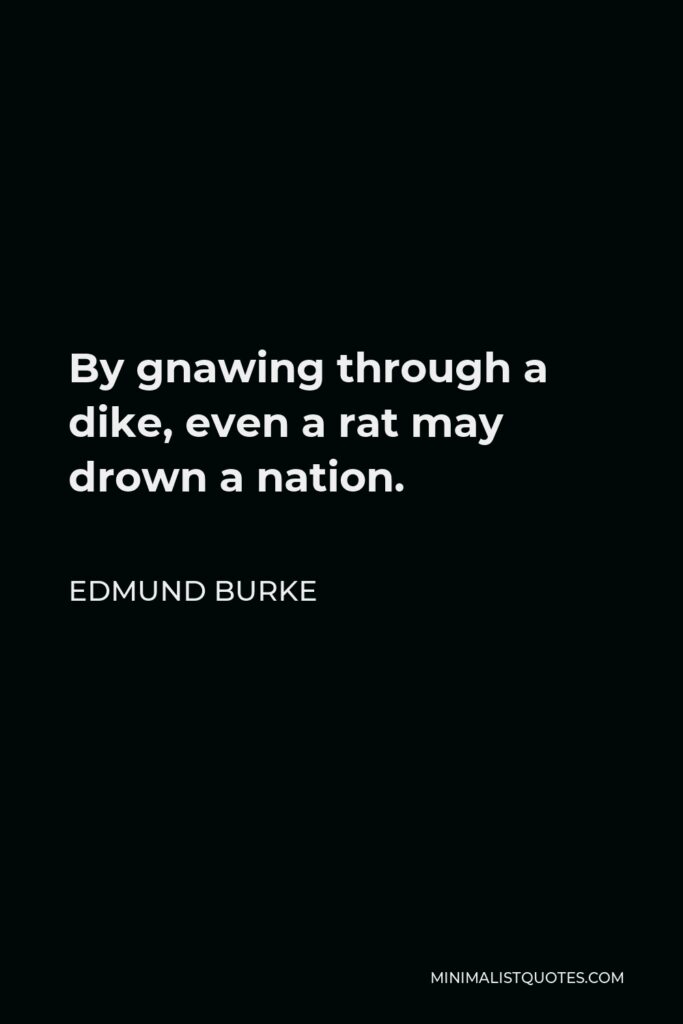

By gnawing through a dike, even a rat may drown a nation.
EDMUND BURKE -





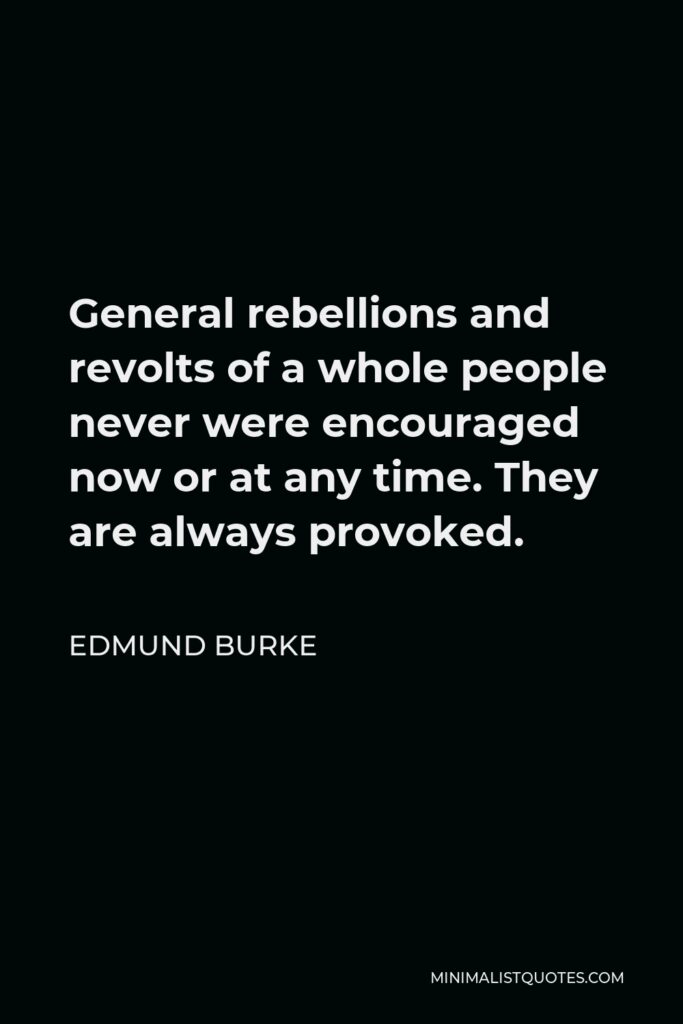

General rebellions and revolts of a whole people never were encouraged now or at any time. They are always provoked.
EDMUND BURKE -





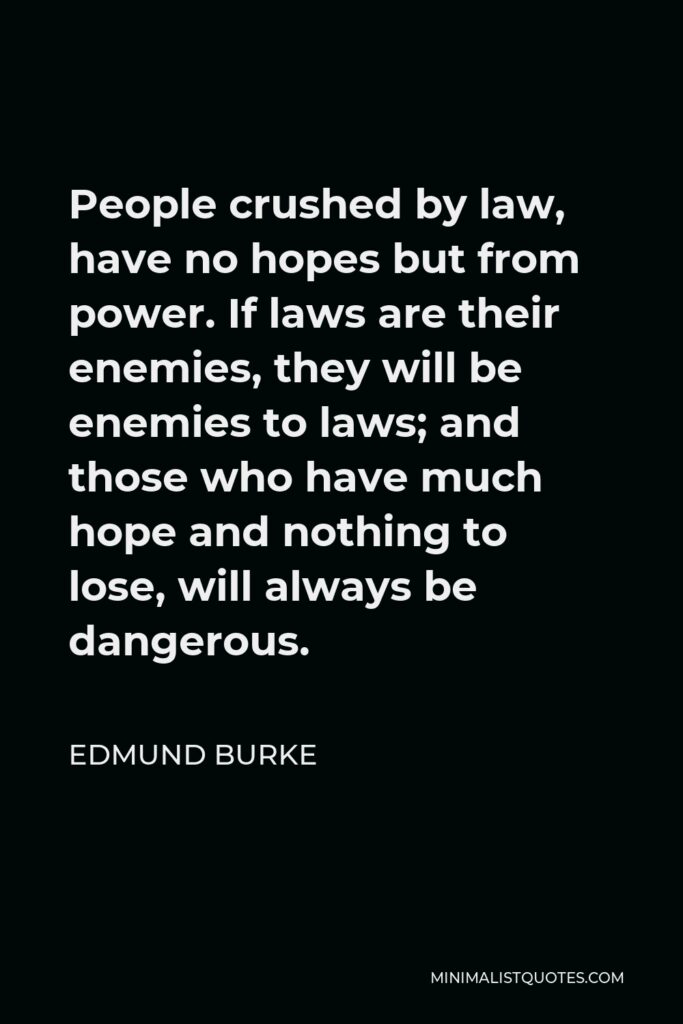

People crushed by law, have no hopes but from power. If laws are their enemies, they will be enemies to laws; and those who have much hope and nothing to lose, will always be dangerous.
EDMUND BURKE -





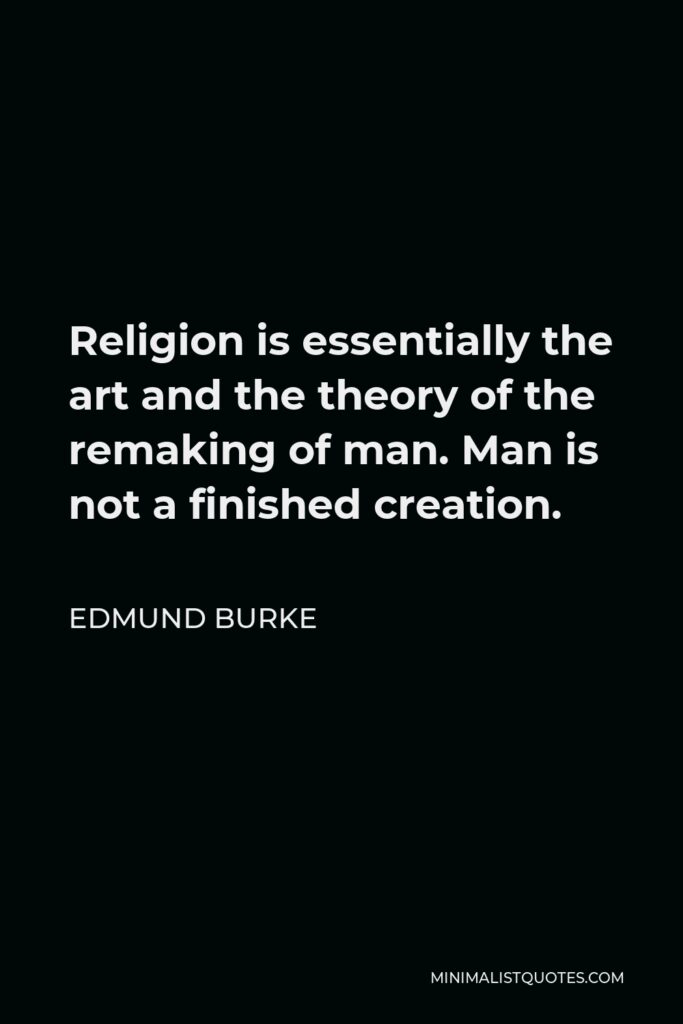

Religion is essentially the art and the theory of the remaking of man. Man is not a finished creation.
EDMUND BURKE -





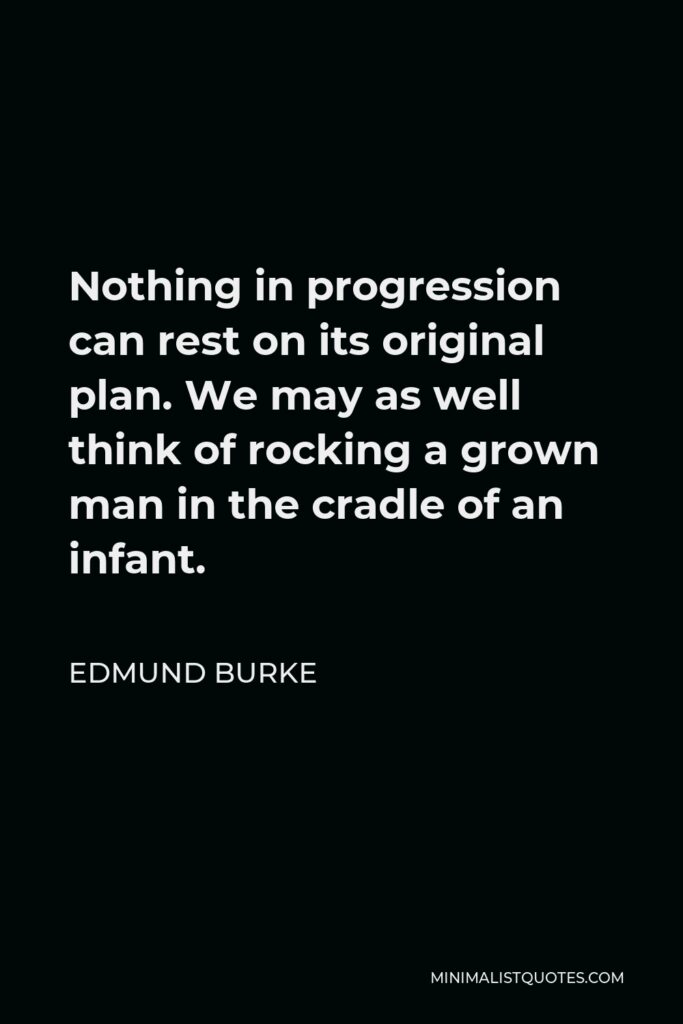

Nothing in progression can rest on its original plan. We may as well think of rocking a grown man in the cradle of an infant.
EDMUND BURKE -





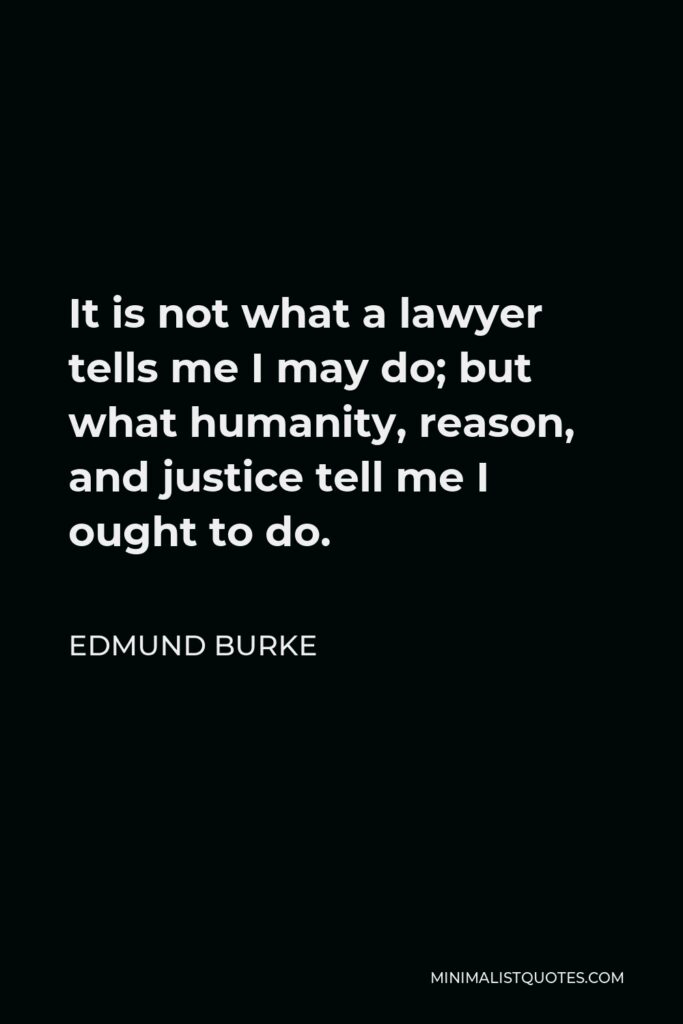

It is not what a lawyer tells me I may do; but what humanity, reason, and justice tell me I ought to do.
EDMUND BURKE -





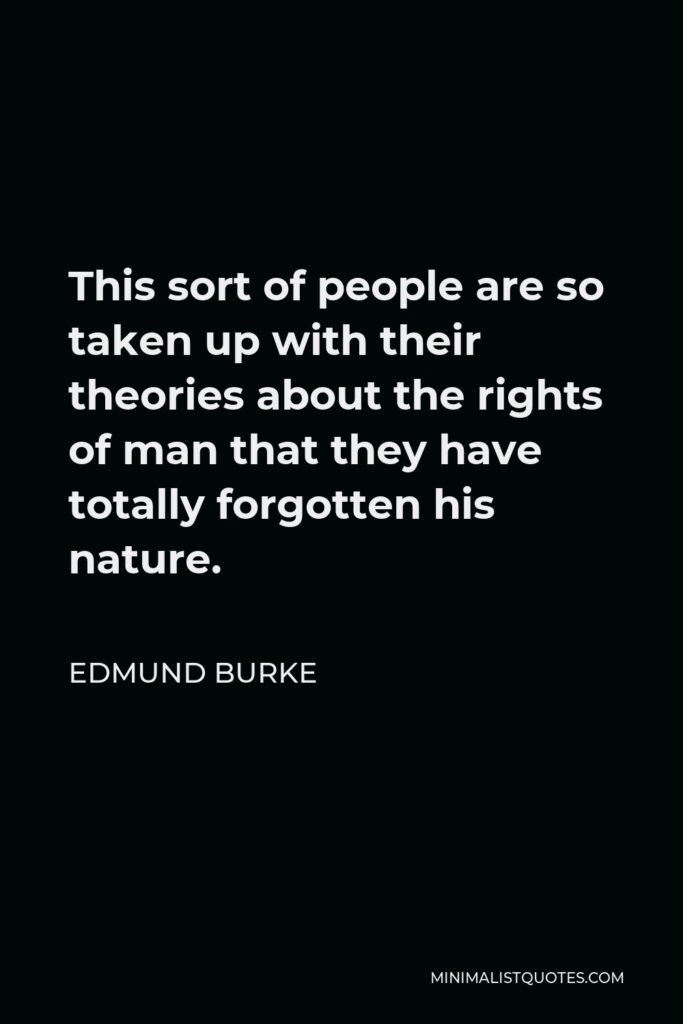

This sort of people are so taken up with their theories about the rights of man that they have totally forgotten his nature.
EDMUND BURKE -





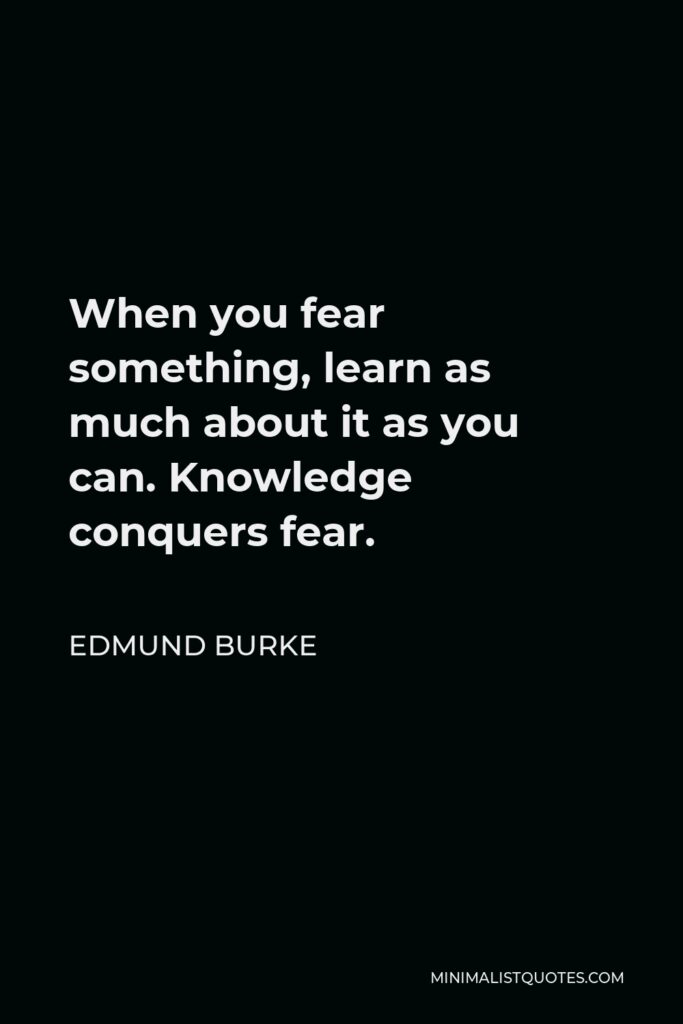

When you fear something, learn as much about it as you can. Knowledge conquers fear.
EDMUND BURKE -





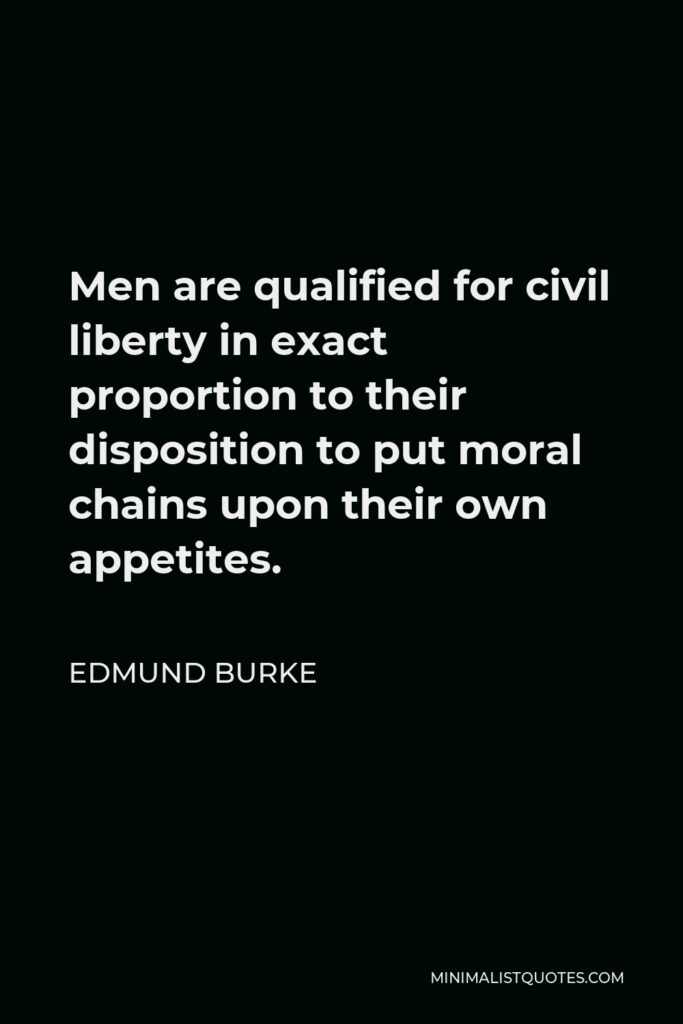

Men are qualified for civil liberty in exact proportion to their disposition to put moral chains upon their own appetites.
EDMUND BURKE
